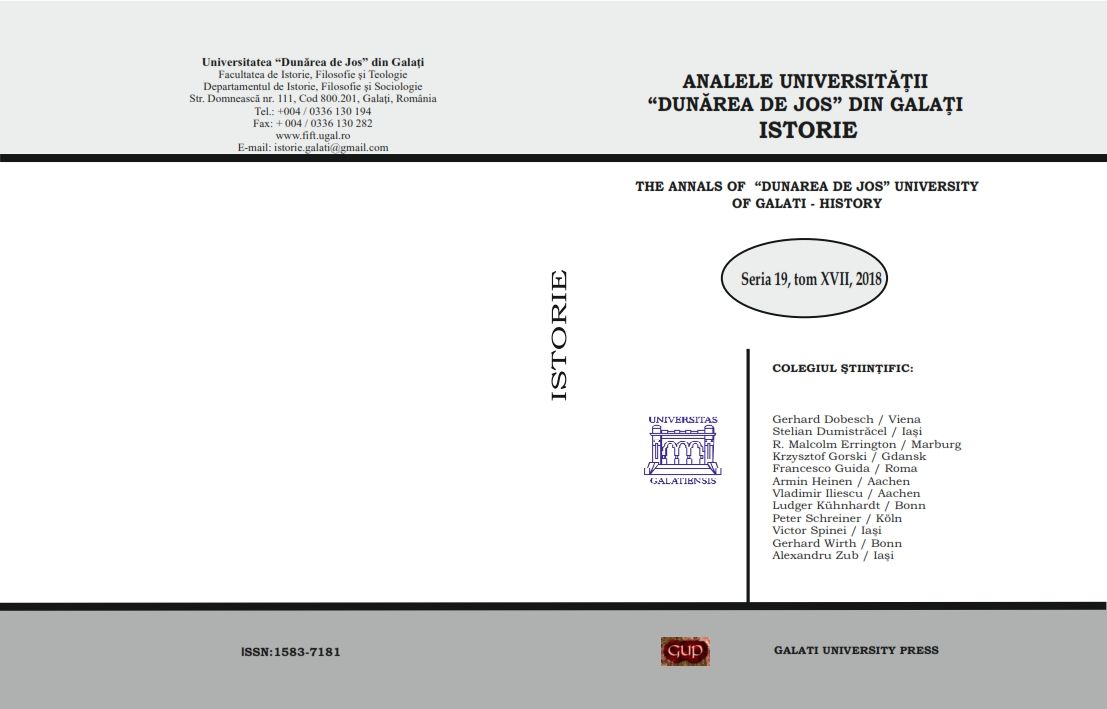REPRESIUNEA POLITICĂ ÎN SUDUL BASARABIEI (1940-1941)
Political Repression in Southern Bessarabia (1940 – 1941)
Author(s): Aliona CEPOI-ACCEBAȘSubject(s): History, Political history, Recent History (1900 till today)
Published by: Galaţi University Press
Keywords: Southern Bessarabia; the USSR; HAPC; repression; arrests; deportations; evictions; operation;
Summary/Abstract: On June 28, 1940, the Red Army entered Bessarabia, which had been a territory of the Romanian Kingdom since 1918. The territories between the Dniester River and the Prut River were annexed to the Ukrainian Soviet Socialist Republic. The “total cleaning” campaign started immediately in the annexed territory. Arrests of “counter-revolutionary and nationalist elements” lasted until July 1941. All those who were considered to have granted “social and political support to the Romanian regime”, such as former military men of Romanian armed forces, police officers, public officials, politicians, businessmen, clericals, higher education lecturers, schoolteachers and lawyers were held up. Soon, the accusations of “counter-revolutionary activities” also started to target peasants, craftsmen, and clerks.Deportation was the most applied form of repression. Thousands of innocent persons branded as “people’s enemies” without any investigations, court proceedings, and even without formal accusations were arrested and relocated to other areas of the USSR in cargo railway cars. Some of such displaced persons died while during their transportation. Those who survived in severe conditions had to work hard for the benefit of their new “Socialist Motherland”. These facts are confirmed by the USSR HAPC/SSPC dated April 24, 1941 and the USSR AUCP(b) and PCC Ruling dated May 14, 1941. The peak of operation aimed to “anti-Soviet element extraction” involving inhabitants of Moldovan SSR, Chernovtsy and Ismail regions fell in the night of June 12/13, 1941. Thousands of Southern Bessarabia inhabitants were relocated to Kazakhstan, Omsk, Novosibirsk, Sverdlovsk, and Kirov Regions of RSFSR. Thus, the Stalinist regime punished people for their views and for activities carried out when the territory was not subject to the USSR laws. People had to endure great hardships for their lives in another state, during another historical period.
Journal: Analele Universităţii Dunărea de Jos din Galaţi. Seria Istorie
- Issue Year: 2018
- Issue No: 17
- Page Range: 63-72
- Page Count: 10
- Language: Romanian

